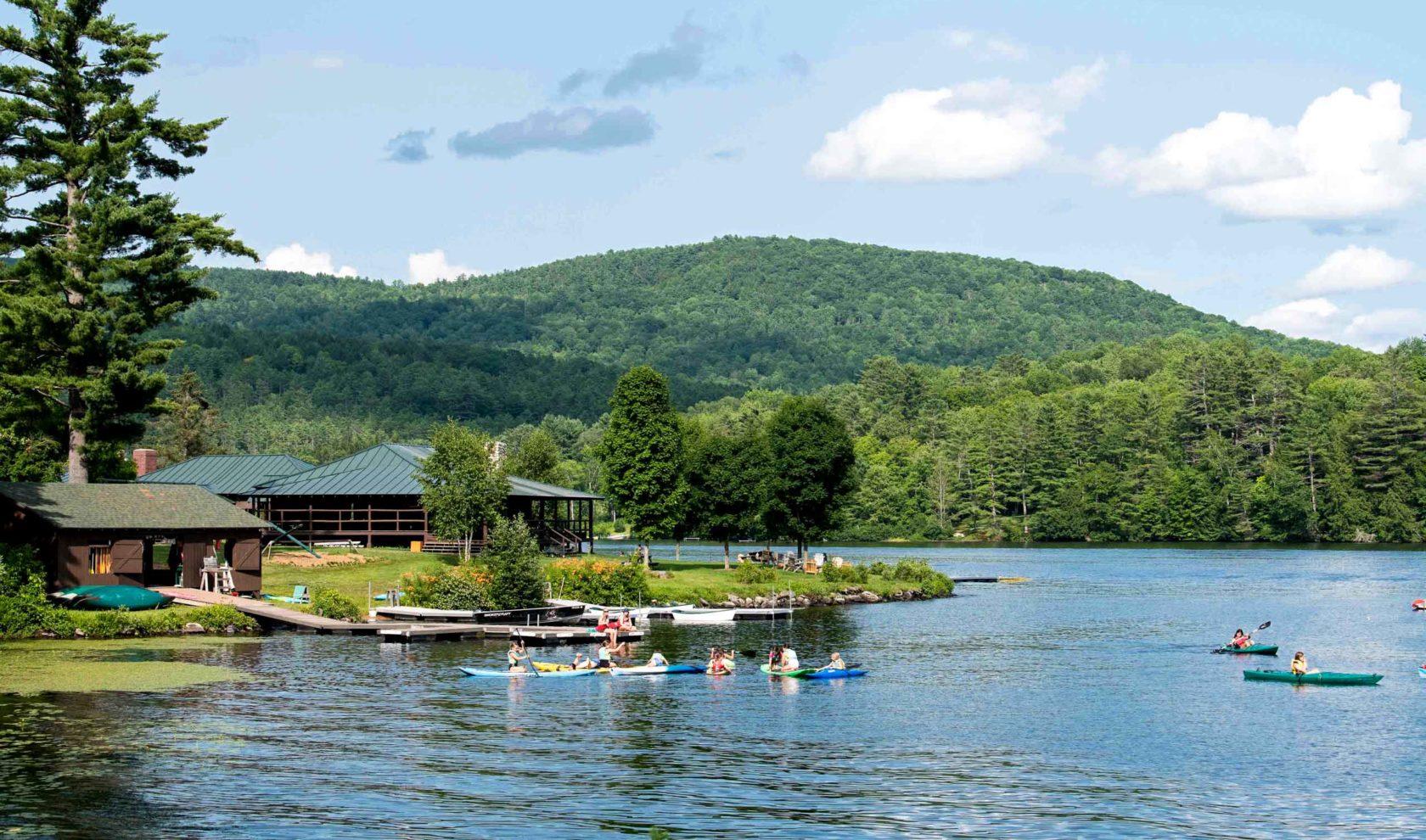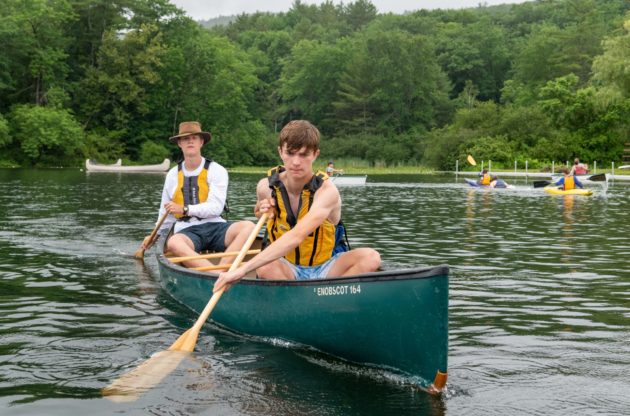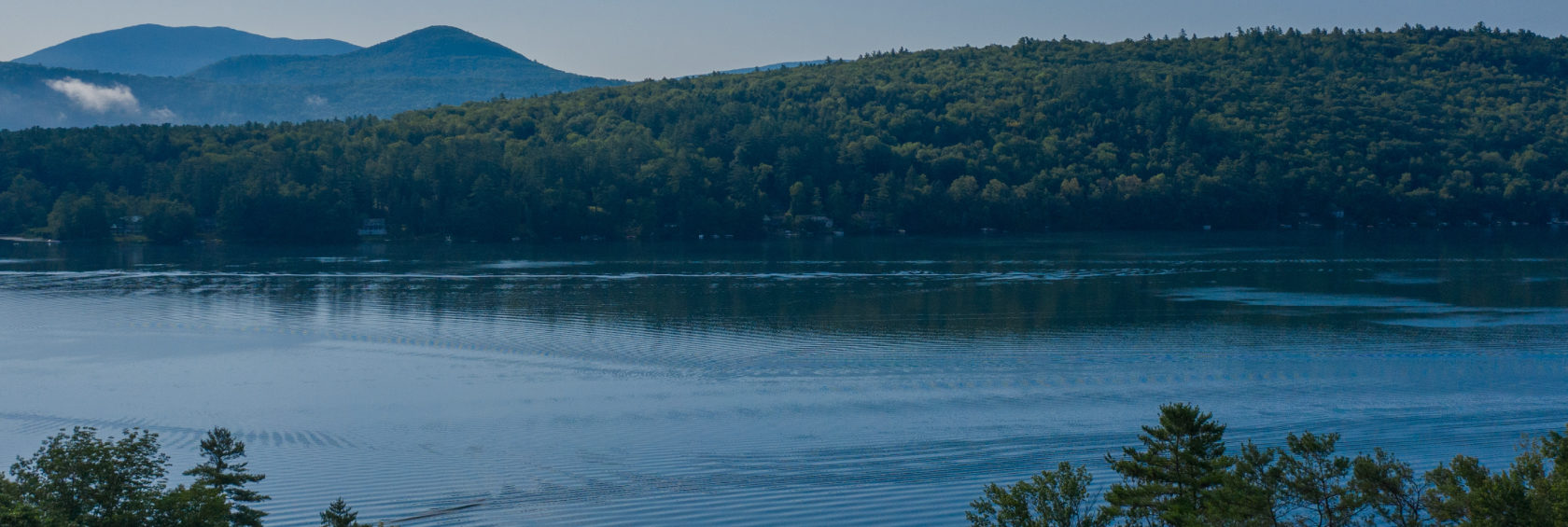
Safety
American Camp Association (ACA) Accreditation Standards
All Aloha Foundation camps and programs are accredited by the American Camp Association (ACA), the industry’s national association charged with ensuring high quality camp experiences. To receive ACA accreditation, our programs must successfully meet up to 300 specific standards.
Of the more than 14,000 day and resident camps in the U.S., only 2,400—or fewer than 20%—are ACA accredited.
The ACA collaborates with experts from the American Academy of Pediatrics, the American Red Cross, and other youth-serving agencies to ensure their camp standards reflect the most up-to-date, research-based practices.
Vermont State Regulations and Licensing Requirements
The Aloha Foundation maintains licenses in the state of Vermont. The state’s requirements are focused primarily on environmental (e.g., drinking water quality), food service, emergency management safety, and more recently, regulations specifically for the sanitation and licensing of children’s camps to protect public health.
What’s the difference between state licensing of camps and accreditation by ACA?
ACA accreditation is voluntary while state licensing is mandatory. Also, while state licensing requirements vary from state to state, ACA standards are the same no matter where a camp is located.
Health & Wellness
Health Houses
The Health Houses at each of our residential camps—Aloha, Hive, and Lanakila—are staffed by a licensed Registered Nurse (RN) and several health house assistants, who are typically nursing students or Emergency Medical Technicians (EMT). The role of the Health House staff is to assist campers and counselors with basic first aid, and provide support for acute illnesses like ear infections, strep throat, or gastrointestinal illnesses and chronic conditions like asthma. All health staff members are CPR/AED trained—health house assistants are additionally trained in Wilderness First Aid and basic pediatric assessment and intervention.
Horizons Day Camp also has its own RN on site.
Our caring staff reviews each camper’s medical history and medications prior to their arrival. Families may contact the nursing supervisor if they have questions specific to their child’s health care needs.
Relationships with Local Pediatric and Emergency Providers
The Health staff works closely with Upper Valley Pediatrics for any clinical issue that requires provider level intervention, such as head or orthopedic injuries, tick exposures, persistent fevers, or rashes. We also work with ClearChoiceMD Urgent Care in Lebanon, NH.
The Aloha Camps use the Dartmouth-Hitchcock (D-H) Emergency Department for all emergency situations with campers. It is approximately forty minutes away by car. The Children’s Hospital at Dartmouth-Hitchcock (CHaD) provides an extended system of care that offers advanced pediatric services and 24/7 pediatric hospitalist coverage. If the nursing staff judges a camper requires more urgent attention, the child will be transported by ambulance. It generally takes between five and ten minutes for an ambulance to arrive at camp. A staff member is always present with the child in the hospital setting, or follows the ambulance if ambulance transfer is indicated.
Certification for Tick, Mosquito, and Poison Ivy Control
We are committed to improving our already high program standards. In 2018, we partnered with Ivy Oaks Analytics, a public health company that works with over 100 summer camps and specializes in the control of ticks, mosquitoes, and poison ivy. Although these have never been a major issue at our camps, we feel strongly that we have an obligation to reduce these risks.
Water Safety
Our program is designed to maximize the safe enjoyment of the waterfront for campers. Campers are assessed for competency and classification prior to taking part in water activities, whether they are improving their swimming, sailing, kayaking, and canoeing skills or just enjoying time in the water with their friends. All waterfront activity is overseen by certified lifeguards with a ratio of 1 lifeguard for every 6 swimmers and boaters for youth camps, and every 10 campers for family camp.

Staff Hiring and Management
Camper-to-Counselor Ratio
A distinguishing factor of the Aloha camps, our low camper-to-counselor ratio (2 campers for every counselor) is connected to our deep commitment to safety and to helping each camper reach his or her potential. Our dedicated mentors provide individualized support and attention to both campers and counselors
Hiring
All staff are vetted through a combination of written applications, verbal and written references, face-to-face or video interviews, and direct observation during pre-camp trainings.
Counselors and staff must continue to meet the Aloha Foundation’s standards of professionalism and behavior in order to maintain employment.
Background Checks
Every prospective employee undergoes comprehensive background and sex offender registry checks at the local and national level. Program/camp staff members, as well as employees who regularly visit our campuses and interact with our campers, are required to complete background checks annually. Foundation administrative staff complete checks upon hire and every 5 years thereafter.
Supervision
All staff have multiple methods of receiving supervision in their work as counselors. Leadership is distributed between the Director and Assistant Director, Unit Heads (living units), and Department Heads (activity areas). Younger counselors are also grouped by age cohorts and provided with additional mentoring and support.
Staff Training
Certification Week
Counselors who are receiving advanced trainings (first aid, lifeguarding, trip leading) attend a weeklong intensive training. This also includes health care staff who play an important role in the health and wellness of participants.
Pre-Camp
Each program hosts an 8-day pre-camp training covering a wide range of topics, and with an overall goal of establishing the community conditions necessary to forge trusting and close working relationships. Expert consultation and trainers are utilized for key topics.
The Child’s World
This training focuses on how we create and maintain a “child’s world,” that is not intruded upon by adult issues, topics, or behaviors. This might include appropriate approaches to adult topics—all with a developmentally appropriate mindset for the age group in question.
Success Counseling
Success Counseling is our process for helping children and colleagues resolve interpersonal and personal conflicts. It is derived from an internal control psychology paradigm that helps people identify the areas in which they have choice or control in a difficult situation.
Appropriate Behavior with Children
This training references many of the procedures and policies related to appropriate behavior with children, developmentally appropriate topics, protection of physical and emotional integrity, and other topics related to the prevention and reporting of abuse behaviors.
Sensitive Topics
Age-customized discussions will be led on specific areas of concern, and the processes and skills needed to resolve them. Examples of sensitive topics include mental health issues that present in children (e.g., depression, anxiety) or helping children navigate issues related to sexuality and gender, racism, or bias.
Mandated Reporting
The Aloha Foundation and each of its camps and programs use overlapping policies and procedures to minimize the potential for harm and ensure assertive response in the event harm may have or has occurred.
In Vermont, camp personnel are mandated reporters under the law. This means any suspicion of abuse must be reported to the Vermont Department of Children and Families. The Aloha Foundation’s Mandated Reporting Policy goes a step further than the state because we also require reporting by personnel who would not normally be mandated under the law (e.g., administrative staff, kitchen personnel) and we require reporting within a 12-hour (rather than 24-hour) notification period.
Our staff are trained to involve their supervisor; supervisors to involve the Director; and Directors to involve the Executive Director. In mandated reporting situations, two people typically report together; however, if there is disagreement, a report must be made anyway. Reports of abuse that occur out of state are made to the reporting authority in that state.
Internal Communications
Our High Stakes Communications Policy mirrors the mandated reporting policy but extends these terms to non-reportable incidents (e.g., a safety failure). It requires staff to bring these issues to designated leaders and team members within 12 hours.

Let’s Connect
We offer camps and programs for people of all ages. Let’s talk about you, your child, your family – and discover together which experience you would value most. There are many options and possibilities!